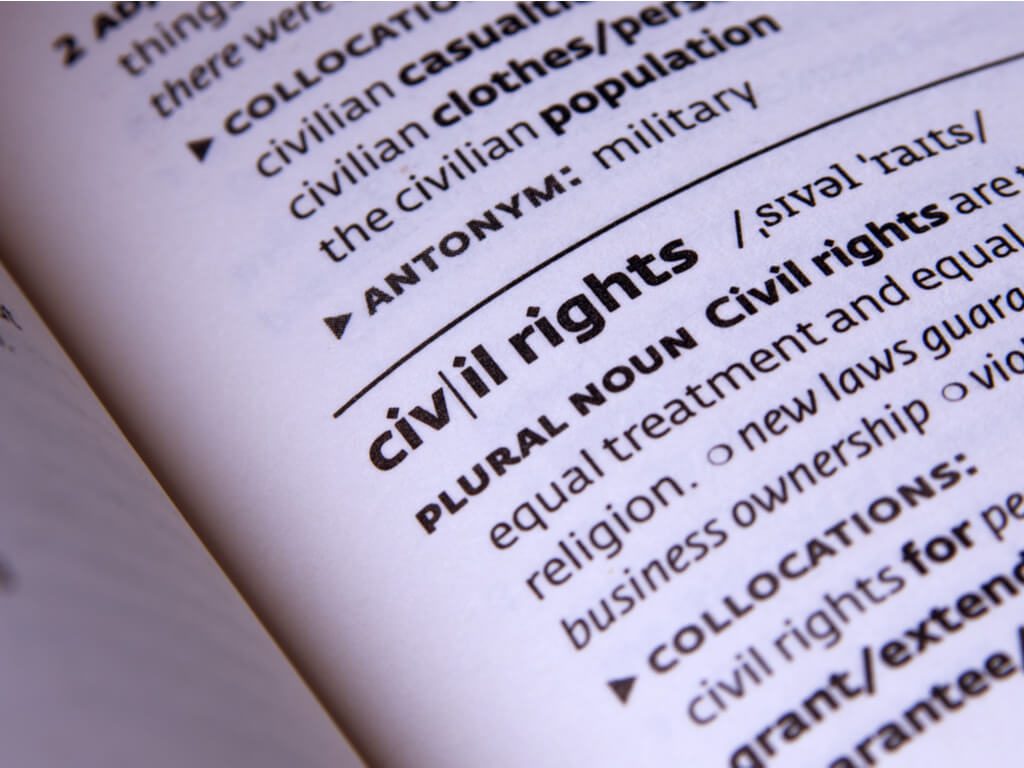The First Amendment to the United States Constitution is truly what creates the fabric of our nation’s democracy while focusing on the individual rights of the everyday American. At Bantle & Levy LLP, we will fight to honor and preserve those rights our forefathers created and defend you in the court of law in New York.
What Does the First Amendment Include?
The First Amendment states, “Congress shall make no law respecting an establishment of religion, or prohibiting the free exercise thereof; or abridging the freedom of speech, or of the press; or the right of the people peaceably to assemble, and to petition the government for a redress of grievances.”
So, in essence, the First Amendment protects various civil liberties including:
- Freedom of and from religion
- Freedom of speech
- Freedom of the press
- Right to assemble
- Right to petition the government of complaints and concerns
While these rights seem basic, they are anything but. As the core of our everyday rights, it is critical to know what you can and cannot do. However, it is equally important to know when you are being treated unfairly for exercising your First Amendment rights.
Do I Have a First Amendment Claim?
If you believe your rights are being violated, our First Amendment civil rights attorneys will review:
- Speech
- Association
- Petition for redress of grievances
- Retaliation
- Selective Prosecution
- Schools
- Religion
Remember, under your Constitutional rights, you deserve to have your freedoms protected and preserved.
Common First Amendment Issues
Though the legalities of First Amendment issues are complex, our New York First Amendment and civil rights attorneys are well equipped to handle the intricacies of your claim.
At Bantle & Levy LLP, we can guide you through common claims such as rights of privacy and publicity, the rights of reporters, statute and contract law, defense against misappropriation, and right of publicity claims. Further, we can protect you in your claims related to publication rights, including invasion of privacy, infliction of emotional distress, fraud and misrepresentation, and tortious interference.
Though more common in our digital era, our attorneys can also help you through laws surrounding digital technology, including cybercrimes, social media free speech concerns, content licensing, and more.
In addition, the civil rights attorneys of Bantle & Levy will also work to defend your religious freedoms due to symbol usage, discrimination in the workplace, and public forums.
Understanding Protected Speech
Given the intricacies of digital media, and the seemingly boundless connections we have to others, protected speech often comes into question.
While freedom of speech is a federal right, New York State also protects the rights of its citizens to “freely speak, write and publish his or her sentiments on all subjects” and “no law shall be passed to restrain or abridge the liberty of speech.”
For example, for an individual to make an employment-based First Amendment retaliation claim, the speech must have been constitutionally protected and on a matter of public concern. Then, the employee must suffer an adverse employment action as a result of the speech. However, if the speech or action took place on company time, as an employee of the company, the employer has the right to terminate the employee.
Matters of public concern are determined by:
- The content, form, and context of the statement
- The totality of circumstances when the comments were made; and
- Whether the employee’s speech was intended to redress personal grievances or carried a broader public purpose.
However, the above is specific to private employees. Public employees must follow a different set of laws.
Free Speech, Public Employees and The Taylor Law
The Public Employees’ Fair Employment Act, commonly known as The Taylor Law, is a ‘“labor relations statute covering most public employees in New York State — whether employed by the State, or by counties, cities, towns, villages, school districts, public authorities or certain special service districts.”
Under the Taylor Law, though it does not expressly protect free speech, public employees are granted the right to join and participate in an employee organization. This means that when a public employee exercises free speech or speech-related conduct, and the employer interferes with, restrains, or discriminates on the basis of such exercise, the employer has violated The Taylor Law.
To prove a violation of the Public Employees’ Fair Employment Act, it must be proven that:
- The employee was engaged in protected activity;
- The employer had knowledge of the activity;
- The employer made an adverse employment decision; and
- The decision was made because of the protected activity.
Protected speech under The Taylor Law includes organizational speech, employee grievances, inaccurate employee statements (unless they are deliberately false or maliciously intended), and confrontational or intemperate speech in some circumstances.
Whether you are a public or private employee, a religious or non-religious person, you have a right to live out your constitutional guarantees.
First Amendment and Free Speech Protection: Bantle & Levy LLP
If your First Amendment rights have been violated and your speech restricted or you have faced adverse employment actions because of your speech, contact Bantle & Levy LLP. We will review the legalities of your claim and help you seek the justice you deserve.

